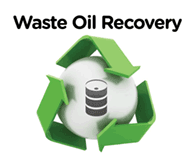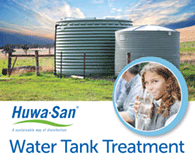
He says it’s the ninth largest economy with a large and relatively well-off population of nearly 150 million people and an expanding middle class. It also happens to be the world’s fifth largest food importer and with its recent accession to the WTO, Russia has a stated desire to join the international community as a modern, progressive and proud nation.
The global financial crisis affected Russia. In 2012, growth, while still only half the level recorded in the decade up to the 2008 crisis, was 3.4 percent, unemployment was at a record low (5.4 percent) and wages had grown at a solid pace.
However, according to the World Bank, if Russia is to reach its growth potential, it will need to reduce the state’s footprint on the economy and improve the investment climate through more transparency, better regulations and more effective control of corruption.
“So, why look at Russia when there are so many uncertainties? Well, there is risk, but there is also a great opportunity to get in early. At the end of May, I was fortunate to join a scoping agribusiness trade mission to Moscow. Organised by NZTE, senior executives from companies including Fonterra and Gallagher joined NZ Inc officials to gain first hand insights into the Russian agricultural sector. Russia is set to go through major change as traditional small-scale farms make way for larger 'mega' farms in order to improve efficiencies and productivity. By talking to key representatives of government, research institutes, major consultancy firms, experienced importers and farmers, the group returned with a much deeper understanding of the opportunities and the challenges.”
Scoliege says that one of the reasons Russia wants its first comprehensive, high quality Free Trade Agreement with an OECD member to be with New Zealand is to encourage the exchange of technology and ideas that will help transform the Russian agricultural sector and foster two-way investment opportunities. Firms with products that contribute to increased productivity, and which reduce inefficiencies and/or produce savings, will find parties in Russia interested in talking to them.
“During my visit I caught up with a New Zealand lawyer who has been working in Moscow for 10 years. He confirmed that while the new Russia went through its wild adolescence in the late 90s and early noughties, the rule of law has improved dramatically in recent years and will continue to do so. WTO accession sets a more robust framework for doing business in Russia. While Kiwi firms still need to be aware of risks, they can be confident that with due diligence and strong local partners, doing business in Russia will bring reward.”
He added that NZTE is investing in Russia by employing a Business Development Manager as part of its Hamburg team, but based at the New Zealand Embassy in Moscow. He will be responsible for working with agribusiness companies as well as supporting enquiries from other sectors. “In many ways we ignore Russia at our peril. While focus is on the performance of the other BRICs, Russia is getting its house in order. The secret to doing business in Russia is thinking long-term.”
Scoliege recommends that by being involved early as a strategic partner, New Zealand can benefit from Russia’s growth now, and in the future.



 Classifieds
Classifieds



